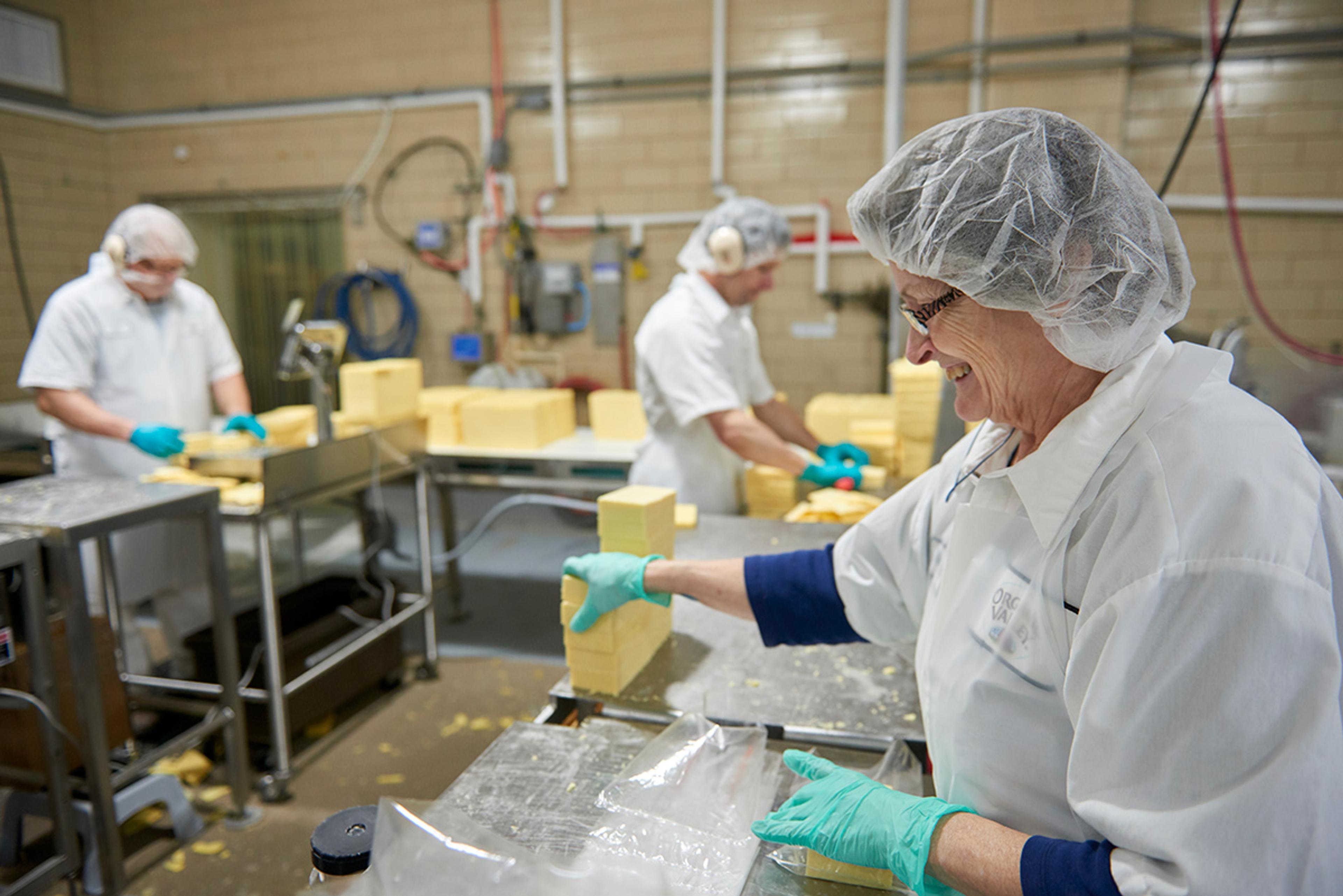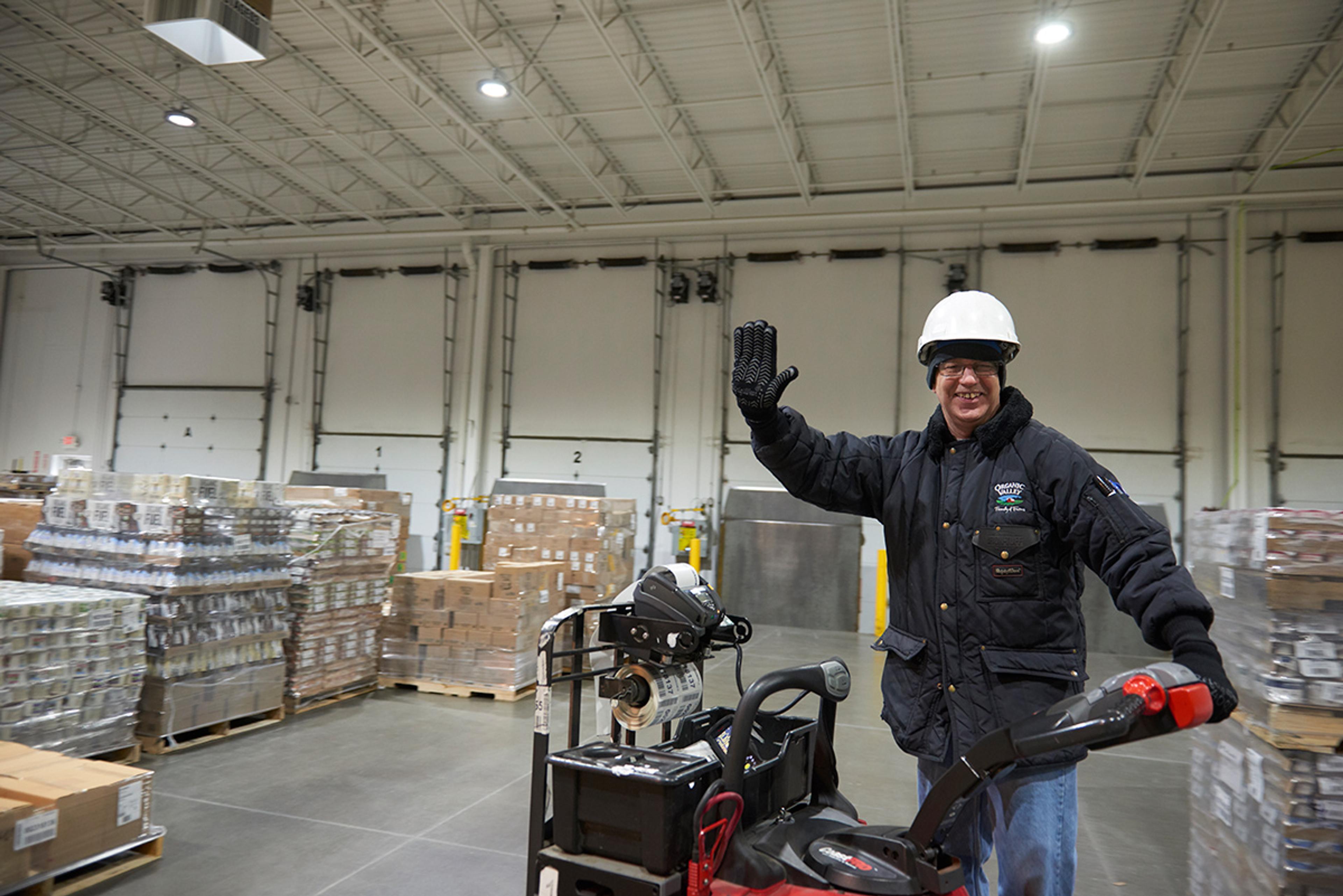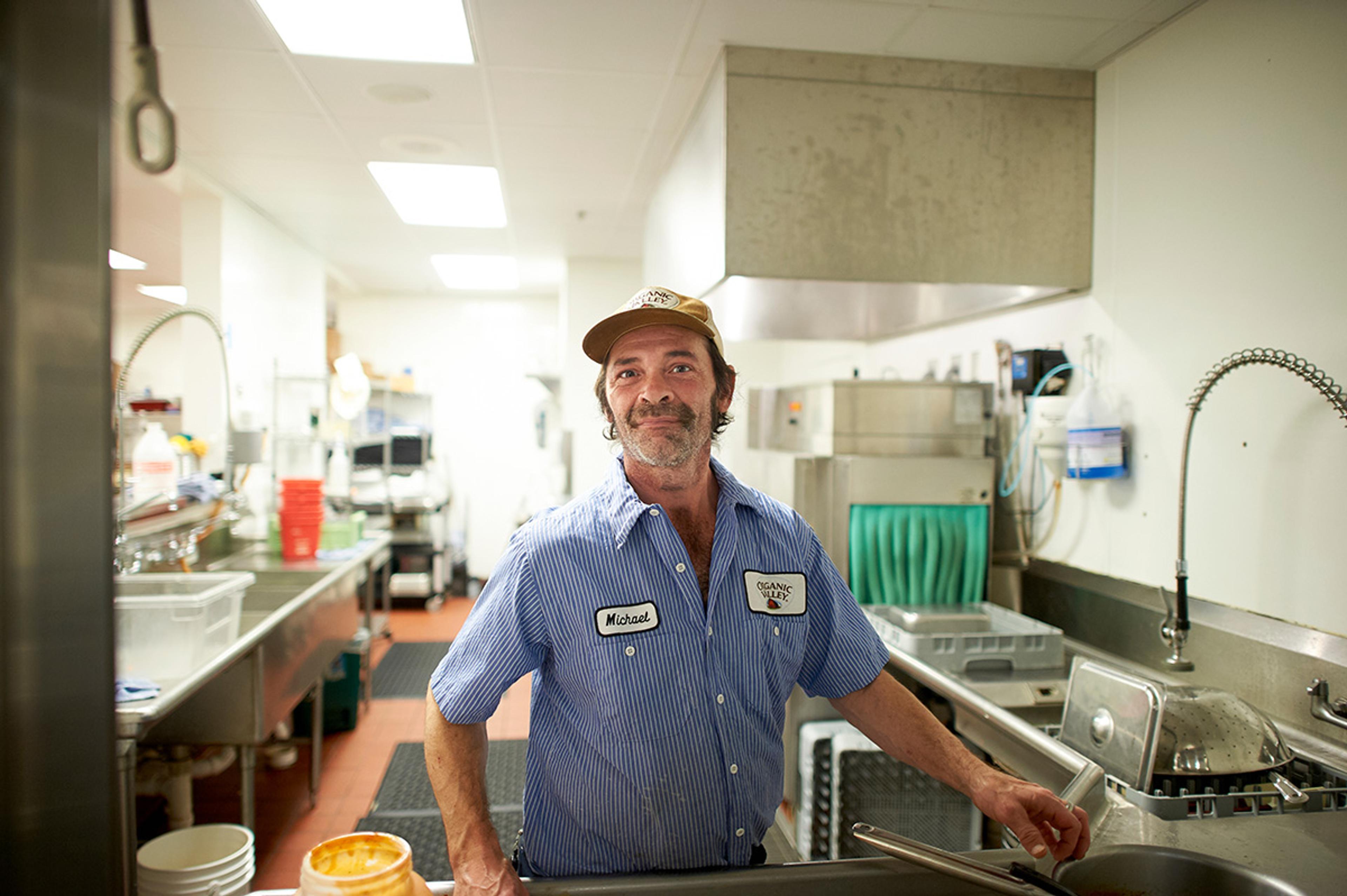
Rooted
Why Organic Valley Has a $15 Minimum Wage
During the farm crisis in the 1980s, a handful of farmers had a vision of creating a system that would ensure farmers received a sustainable pay price for their goods. They wanted to make sure they could take care of their families, their farms and themselves. The Organic Valley cooperative was born through this vision, and fulfilling our mission would not be possible without dedicated farmers — and employees. Ensuring our employees earn a living wage is vital to the success of our cooperative.
Organic Valley embraces the driving principle of fair pay for a fair day’s work, and on Jan. 1, 2019, Organic Valley increased its minimum wage from $13 to $15 an hour. Taking that ideology of financial stability beyond our farmers to our employees is not only the right thing to do, it’s good business sense.
Providing a $15 an hour minimum wage is a small thing we do to create a level of financial stability for everyone who works here. This is part of the co-op approach to our employees and to ensuring that they feel Organic Valley is a meaningful workplace — a great workplace.

The conversation around wages has been an interesting one throughout the co-op’s history. In the beginning, everybody on the small staff was paid the same. In 1988, the wage was $5 an hour, and then $7, and up from there. Conversations around the co-op's minimum wage are always evolving. We place emphasis on this as a co-op because it’s tied to our mission of sustainable pay for farmers.
From afar, it may appear that increasing wages is costly for businesses, but our cooperative sees the benefits. Not only can we feel good about paying our people fairly for their hard work, we experience less employee turnover, which means less time and money spent on recruiting new employees. A higher minimum wage and competitive salaries overall make Organic Valley a competitive place to work and is a boost that increases morale and productivity.

The federal minimum wage is only $7.25 per hour, or approximately $15,000 a year, before taxes, for a person working 40 hours per week. It has been $7.25 for more than a decade, and we don’t need studies to show the cost of living has increased. A higher minimum also reduces income inequality — how income is distributed among groups, people and social classes.
Some states have exceeded federal minimum wage requirements but not all, including Wisconsin, where Organic Valley was founded and has its headquarters.
Fortunately, many businesses and organizations across the country are pushing for a higher federal minimum wage. How does somebody live on $7.25 an hour? My belief is you can’t. A minimum wage should allow people to improve their situations, which is good for the whole community. It’s easy to support the movement to increase minimum wage, and we applaud those businesses that have made increases.

Organic Valley’s minimum wage is $15 an hour, and $16 an hour for those starting in production roles, which commonly start around $9 to $10 an hour. Employees who are required to work on-site at our facilities during the COVID-19 pandemic are also receiving $2 an hour extra. We continue to look at these rates, and when it makes sense, we will continue to adjust.
Everybody who works deserves a fair wage, and we recognize that a sustainable food system also requires everyone in it to be paid a stable, sustainable wage.
For now, each business must make its own decisions about what to pay its employees, but business owners need to remember that they are employing their neighbors and supporting the communities that support them.
Ensuring our employees and farmers earn a living wage is vital to the success of our cooperative — and it’s simply the right thing to do. Everybody deserves financial sustainability. It’s part of Organic Valley’s mission, and we intend to continue fulfilling that mission.
Related Articles
Tags:
- cooperative businesses,
- sustainable business

















